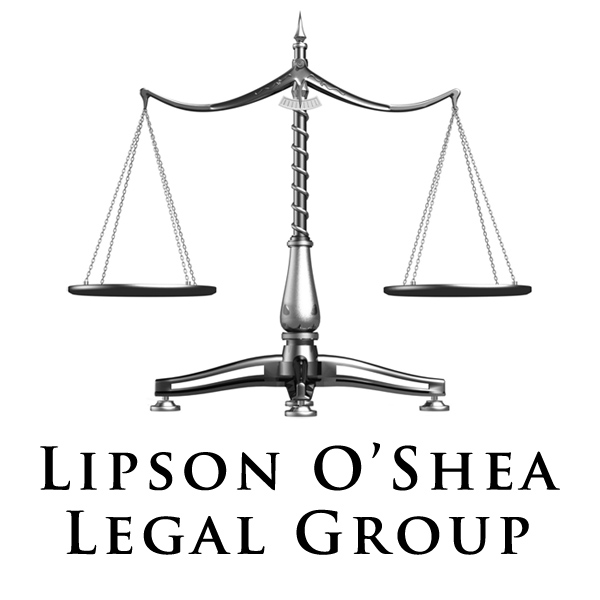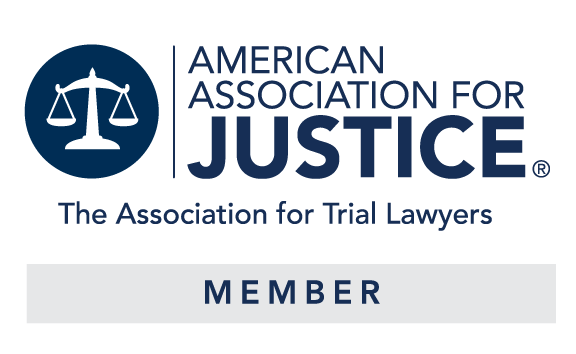Call 216-345-HURT(4878) for immediate assistance.
No recovery, no fee.
We are passionate about applying our experience in Personal Injury Law to help those going through such a difficult time.
We make sure that each client feels heard, understood and respected. Whether a transportation accident, wrongful death, or work-related injury, we make sure our clients' best interests are represented and that they get the compensation they deserve.
Here’s why Lipson O’Shea Legal Group is the choice for Personal Injury cases:
We are compassionate listeners and understand that very client has different needs
We empower our clients with information so they can make the best choices
We are in Ohio Courtrooms almost every day
We have actually tried many hearings and trials on Personal Injury issues
We are available 24/7, we never close
Lipson O'Shea Legal Group is committed to providing our expertise and best strategies to our cases so our clients can regain the quality of life enjoyed before the injury.
Call us at 216-345-HURT(4878) 24/7 or fill out the form below:
Personal Injury Law Information
What is a "Tort"?
Generally speaking, a "tort" is an injury one person or entity inflicts (accidentally or intentionally) upon another. When one person commits a tort upon another, the injured person is entitled to remedies under the law. Generally, these remedies can include monetary compensation and restraining orders. The person who brings the lawsuit is called the "plaintiff," and the person who is sued is called the "defendant." The area of tort law is often referred to as "personal injury" law (although this is not altogether a completely accurate term). Most torts involve, in some part, the doctrine of "negligence." The concept of negligence can generally be describes as (i) the failure of one person to act in way we would expect that person to do under the circumstances and (ii) an injury which results from that failure.
Types of Torts
In Ohio, there are a number of different types of torts. Here is a short list of the most common.
Automobile Accidents – These types of torts involve all of the personal injuries one can receive in an automobile accident. Generally, one driver causes an accident which injures (or sometimes kills) others (e.g. his passengers, people in another automobile or pedestrians).
Premises Liability – These types of torts involve injuries one can receive from the condition of a particular parcel of property, mostly due to the failure of the property owner to keep the condition of the property in a safe condition. Two common examples of these types of torts include (i) a "slip and fall" accident and (ii) an injury one receives from a crime committed on another's property (e.g. being mugged or assaulted in a private parking garage where the owner of the garage knew that people were getting mugged all the time - and did nothing to prevent further muggings) .
Malpractice – These types of torts involve injuries one can receive due to the mistake of a licensed professional (i.e. a doctor, a lawyer, a dentist or a CPA). Generally, these types of torts require the "expert" testimony of a professional (e.g. another doctor in a medical malpractice case).
Products Liability – These types of torts involve injuries one can receive from a "product" such as a machine, medical device or a prescription drug. The injured person must prove that the product in question was improperly designed, constructed or packaged (without the proper warnings or instructions) - without the proper regard for the damage it could cause to a human being. See also a web page dedicated to products liability discussion: www.productslaw.com.
Defamation/Invasion of Privacy – These types of torts involve injuries one can receive from something another says or writes which is untrue, malicious and/or private. These defamation torts include (i) slander (spoken word), (ii) libel (written word) and (iii) invasion of privacy (making something public which was and should have remained very private).
Assault and Battery – These types of torts generally involve one person physically attacking another person. These are also sometimes called "intentional torts" to distinguish them from most other torts (which usually involve an accident resulting from another's mistake or lack of care).
Fraud – This is also another type of intentional tort. This involves one person lying, misrepresenting or concealing an important piece of information from another person in order to get that other person to do or refrain from doing something. In short, a plaintiff is tricked by the fraudulent act of the defendant.
Types of Damages
In most tort cases, the plaintiff is seeking damages (i.e. money). Generally speaking, there are two major categories of damages a plaintiff can recover in a personal injury case: (i) compensatory damages and (ii) punitive damages. See also a web page dedicated to damages: Damages Law Materials.
"Compensatory damages" are designed to "compensate" the plaintiff for what the plaintiff has lost or endured (e.g. medical bills, lost wages, lost income, physical pain and suffering and mental/emotional pain and suffering) as the result of the defendant's actions.
"Punitive damages" are designed to punish the defendant for his actions. However, punitive damages are only awarded in extraordinary situations where the plaintiff proved that the defendant acted with malice or intent - negligence is not enough. The law permits punitive damages in order to discourage similar acts in the future by the same defendant or other persons. Punitive damages are usually awarded in cases involving fraud, bad faith or intentional acts. However, in order to get any punitive damages in Ohio, the plaintiff must be awarded at least some compensatory damages.
Some tort cases also seek what the law calls "injunctive relief." Injunctive relief involves a court order requiring or preventing the defendant from doing or continuing to do a certain act. This type of relief includes such things as temporary restraining orders and permanent injunctions. A plaintiff can request both injunctive relief as well as monetary damages in the same lawsuit.
What to do after an accident... You don't always have to contact an attorney immediately after a personal injury accident. However, there are some things you simply have to do.
Make sure an accurate and immediate record is made of the incident. For instance, if there has been an automobile accident, call the police and insist on making a police report, and feel free to take your own photographs. If there was an accident on the property of another, get the names of the persons who were witnesses to the accident and get the names of the owners and managers of the property, and again, take photographs. This documentation will always be invaluable later when you have to deal with insurance adjusters or lawyers for the defendants.
If you are in any discomfort, see a medical provider right away. These medical providers will generate medical records to document your pain and medical treatment. If you try to tough it out, you risk going untreated and making your recovery prolonged, and you invite insurance adjusters to question whether you were really hurt in the first place.
Don't sign anything presented to you by the insurance adjuster or the defendant until you feel you have completely recovered from your injuries and the doctor has told you have recovered and you have consulted with legal counsel about your rights and the true value of your inury. If you sign a release and later discover that the accident caused a much more serious injury, you are very likely to be barred from seeking any further recovery from that defendant.
Make sure that any settlement from the defendant or the insurance company includes money for such things as pain and suffering, lost wages and any other loss you know (and can prove) was related to the injury.



